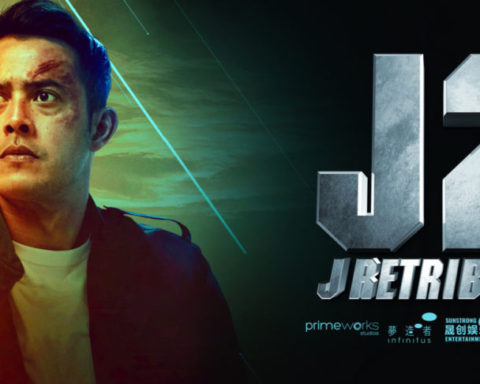If you’ve spent any time on social media over these last two weeks you’ll know that it has become next to impossible to have a conversation about Israel and Palestine without it descending into a confusing and chaotic mess of angry finger pointing and whataboutisms. The conflict, with all of its carnage and trauma, has gone on for so long now that most of the world has grown detached and disinterested. So much so that it is only when there is an escalation in violence and bloodshed, as is wont to happen every few years, that we are suddenly moved to action. That we are rudely awakened to the fact that these are people who live with death and destruction – or the threat of it – on a daily basis. And HBO’s Oslo is a potent and necessary reminder of the human side to this story.
Oslo might just be one the timeliest movies ever. Based on the Tony award winning play of the same name by J.T. Rogers, it chronicles the once secret, back-channel negotiations that lead to the pivotal 1993 Oslo Peace Accords between Israel and the Palestinian Liberation Organization. It tells the story of that one, brief, shining moment in recent history when we genuinely believed that there would be peace in our time.
While the accords didn’t result in a lasting peace, they nevertheless remain a monument to the good that can happen when people come together and talk. This is a story that needs to be told and retold. Especially now, more than ever, at a time when we have have so many avenues for discourse and yet find ourselves unable to actually communicate with one another.
We’re All Friends Here

Ruth Wilson and Andrew Scott play husband and wife, Mona Juul and Terje Rød-Larsen, maverick Norwegian diplomats who, rather unbelievably, organized top secret talks between the Israelis and the Palestinians, and inspired some seemingly impossible friendships. These “unofficial” negotiations took place in an idyllic estate just outside Oslo, a neutral setting, away from the media (and the United States!), where these long battling enemies could come together as human beings and try to find some common ground.
J.T. Rogers has masterfully adapted his own material by paying close attention to what does and doesn’t work for the screen. He’s shaved off almost an hour from the original play, killing some darlings (like the wonderfully snappy dinner party that opens Act I), and keeping the action focussed on the Israelis and the Palestinians. Oslo doesn’t feel stagey – unlike say One Night in Miami or even Ma Rainey’s Black Bottom. And despite not having the same warmth as a playhouse, the production still feels remarkably intimate, drawing you into these negotiations and making you feel like you’re a part of it.
Almost all of the action in Oslo takes place in meeting rooms, where people come together, often for the very first time, and try their hardest to leave the baggage of history behind them. These fly-on-the-wall narratives are notoriously hard to pull off. The best ones feel participatory, not voyeuristic, and Oslo does incredibly well in getting you invested in this drama that took place almost 30 years go.
This is a movie that successfully keeps you tense and on the edge of your seat throughout. You can’t help but gasp every time someone storms out of a room. You will cringe whenever arguments get personal. You will cry out in frustration when it appears that things are beginning to fall apart. And all of this despite you already knowing what happens in the end. If that isn’t a testament to great writing, I don’t know what is.
The Medium Is the Message

The power of this movie, however, is in how it treats its subjects. Here, the Israelis and Palestinians aren’t cartoons or caricatures, defined only by their struggle against each other. Neither is perfectly good nor wholly evil. And both serve as more than just cautionary tales and parables for the rest of the world. They are human beings, real people who hold complex and diverse beliefs, and who are struggling to survive.
Oslo makes it a point to highlight the fact that there is no one true narrative at play. It doesn’t ignore the fact that this is a conflict that is made up of a tangle of stories that have been inflamed, throughout history, by war, and colonialism, and the Holocaust.
There are no saviors in this movie. Right from the outset, we are told that this is not a story about Mona and Terje swooping in to save the poor natives from themselves. When Mona makes Terje say out loud that he will merely “facilitate” these meetings, Oslo explicitly tells us that they are here in a supporting role and not a starring one. That they are ready to take their cues from those at the heart of this forever war. There is a mindfulness in that portrayal that doesn’t just break from traditional colonialist thinking but also speaks to everything that activism should be.
Not All Heroes Wear Capes

You have fought and killed each other for 50 years. Your mothers, your daughters, your sons have died and nothing has changed. The world has washed its hands of this conflict because it does not believe that you can change. No one else is coming to help you. This is up to you.
Those words, spoken by Ruth Wilson’s Mona Juul, ring as true today as they did three decades ago. They are a terribly depressing note at just how nothing has changed and how little progress has actually been made.
Oslo is a movie about the sort of quiet heroics that can actually change the world. This is a movie that puts forth a nuanced message for all of us on the outside looking in. It is a reminder that we cannot save, we cannot rescue, and we cannot demand that both sides just manufacture peace. That has never worked. And it likely never will. The problems of those two nations can only really be solved by them. As responsible global citizens, our role is to support, facilitate, and, on a good day, deescalate. And if we can do that, we might just be able to contribute something meaningful.












Follow Us